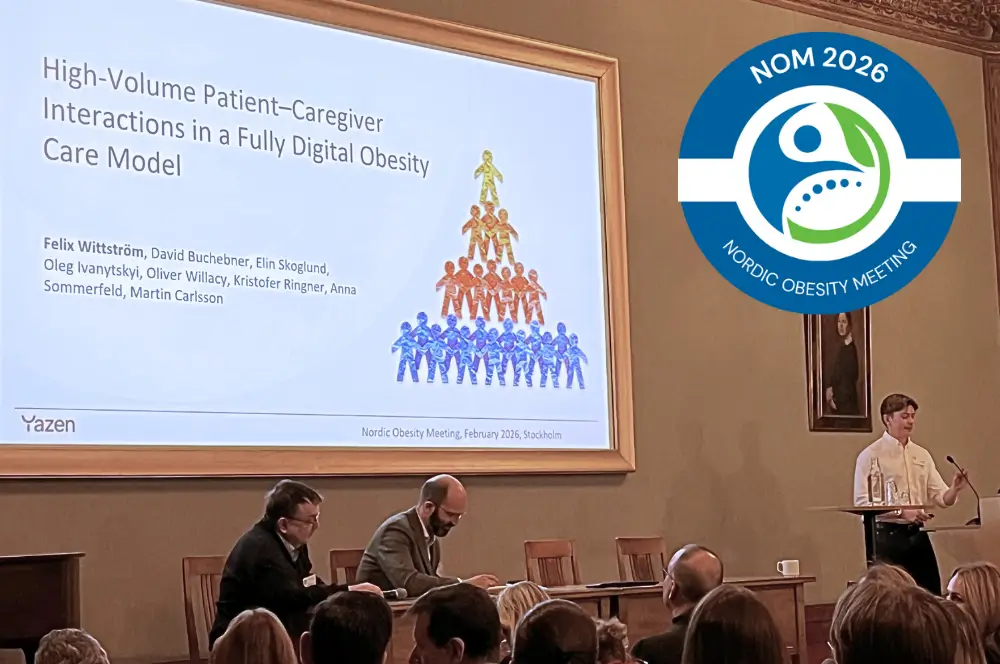Lasker~DeBakey Award 2024 for groundbreaking GLP-1 obesity research
Lasker~DeBakey Award 2024 for groundbreaking GLP-1 obesity research

The 2024 Lasker~DeBakey Clinical Medical Research Award has been awarded to three researchers for their groundbreaking work on GLP-1-based drugs, which have revolutionised the treatment of obesity.
The prestigious Lasker~DeBakey Clinical Medical Research Award for 2024 has been awarded to researchers Joel Habener (Massachusetts General Hospital) and Svetlana Mojsov (The Rockefeller University) for the identification of the physiologically active form of the hormone GLP-1, while Lotte Bjerre Knudsen (Novo Nordisk) is recognised for developing drugs that promote weight loss.
The recipients' work has revolutionised medical treatment of obesity by offering an effective and safe method to help people lose weight and improve their health.
At Yazen Health, where we work daily with people living with obesity, we understand the importance of their work and deeply appreciate the advancements these and other researchers in the field have made. Their contributions have not only changed treatment options but also provided hope and improved the quality of life for millions of people.
Globally, nearly 900 million adults live with obesity. In the US, up to 40% of the population is affected, and in Europe, the figure is close to 25%. Being overweight contributes to many life-threatening diseases, but for many, diet and exercise alone are not enough to solve the problem. Previous attempts to create safe and effective drugs for weight loss have failed, but with the discovery of GLP-1 and other incretin-based drugs, a new era of weight control has begun, with drugs like semaglutide and tirzepatide promising to improve the health of millions.
The discovery of GLP-1 began in the 1980s when Habener was studying glucagon and found that the glucagon gene also codes for a previously unknown hormone, GLP-1. Mojsov contributed by developing a synthetic method to produce large amounts of GLP-1 and investigating how GLP-1 functions in the body. She discovered that the shorter form of GLP-1 (GLP-1 7-37) is the active form that stimulates insulin secretion.
Knudsen at Novo Nordisk took GLP-1 research a step further by developing drugs based on GLP-1 that not only treat diabetes but also promote weight loss. She developed liraglutide, the first GLP-1-based drug approved for daily use, and later semaglutide, which has an even longer duration of action. These drugs reduce appetite and help patients lose weight by increasing the sensation of fullness.
Semaglutide was approved in 2021 for the treatment of obesity under the name Wegovy® and has proven to be twice as effective as liraglutide, with an average weight loss of 28 kg over 16 months.
GLP-1-based drugs, including liraglutide, semaglutide, and now the latest GLP-1/GIP agonist tirzepatide, have opened the door to powerful new treatment options. Researchers are now exploring GLP-1's potential to treat other diseases, such as chronic kidney diseases, fatty liver, neurodegenerative diseases like Alzheimer's, and even addiction.
Read more here: https://laskerfoundation.org/winners/glp-1-based-therapy-for-obesity/
More news
Yazen achieved record-breaking growth in 2025, doubling its revenue.
In 2025, Yazen's revenue surged 87% to nearly €29.4 million, with gross profits doubling to €16.5 million. Now treating over 37,000 active patients across seven countries, the company is eyeing further expansion into two more markets in 2026. Despite an EBITDA of –€5.7 million due to heavy growth investment, Yazen remains a leader in European obesity care.



















